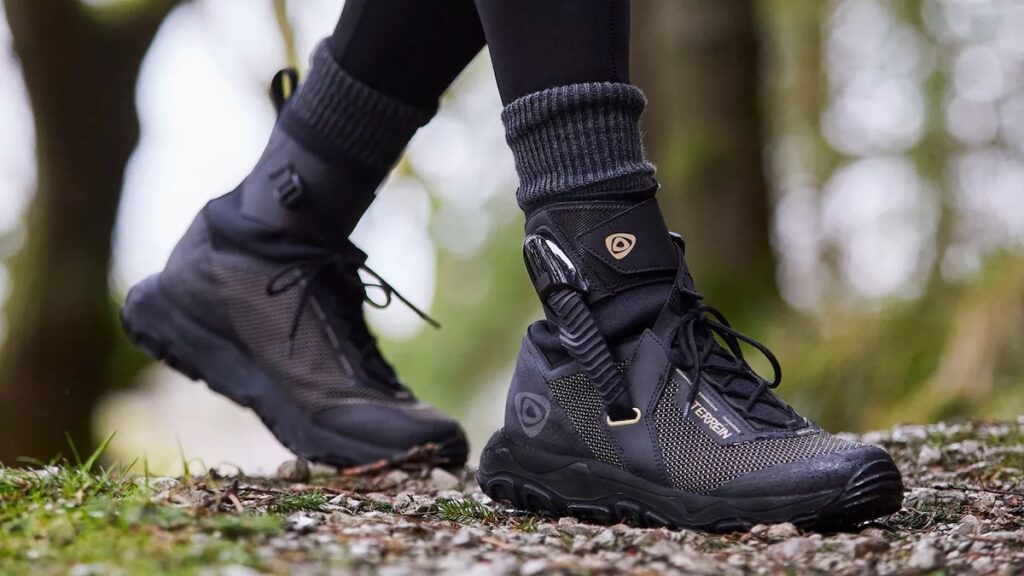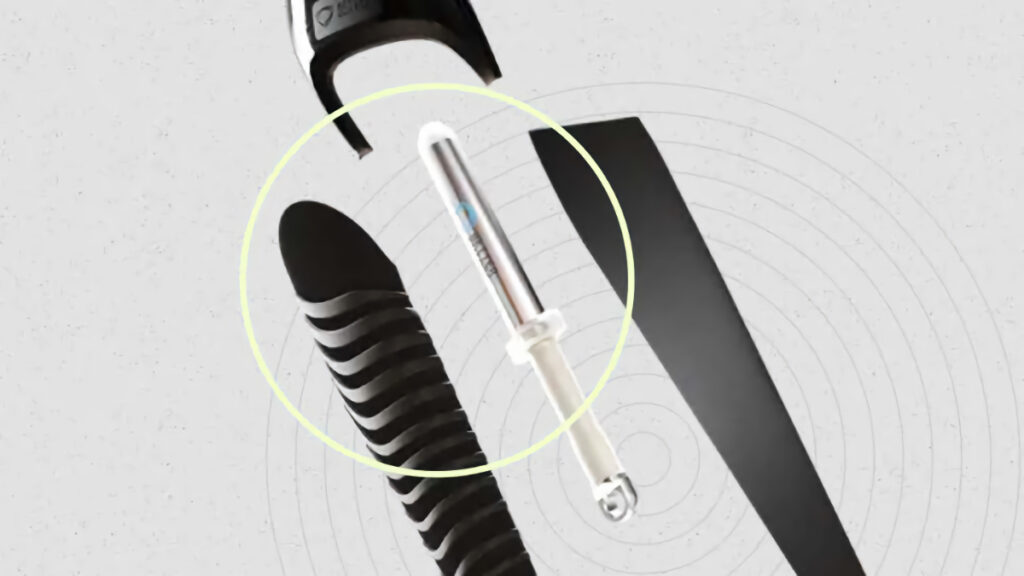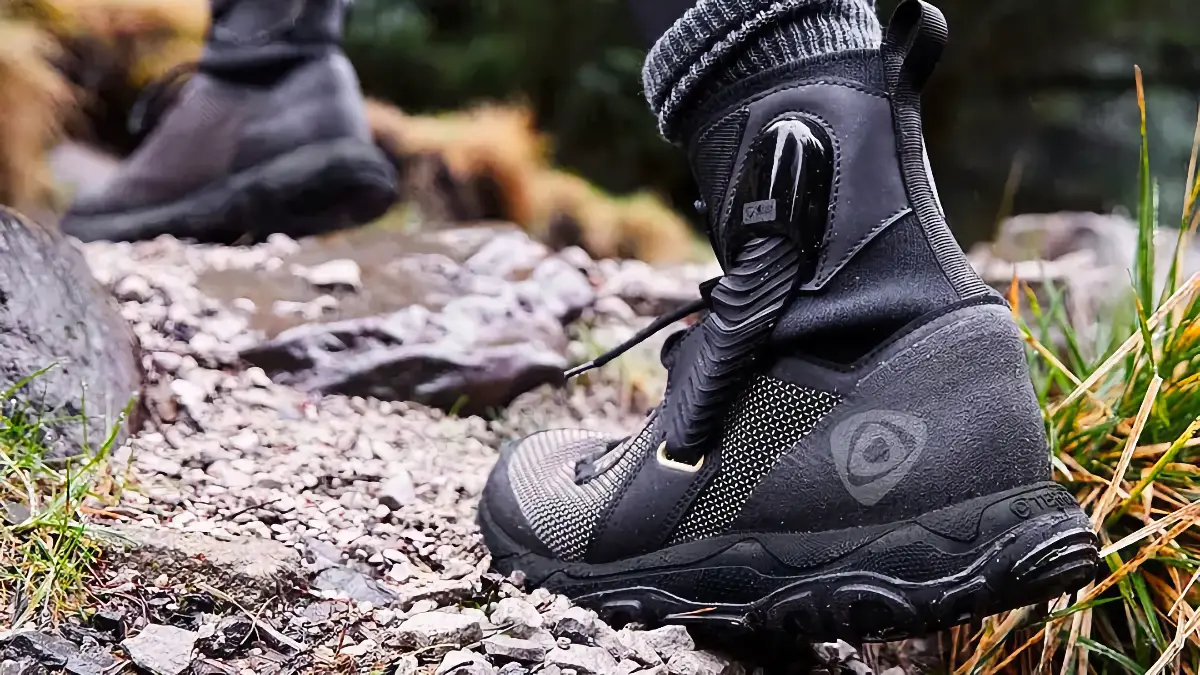If you’ve ever done any serious hiking or backpacking on difficult and demanding trails, you probably know how important it is to have good ankle support. Not only does a mid- or high-length boot provide additional stability, but they also help prevent an accidental turn of an ankle that could spell big trouble in the backcountry. Having this type of support increases a hiker’s confidence on the trail, making it easier to scramble over rocks or climb and descend with more control.
Now, a new company is looking to bring an innovative new design to the boot market, delivering what it calls “adaptive ankle protection” to the market. In this case, that means not just offering the standard high ankle support to its Terrain boot, but an unusual mechanism that resembles a piston.

Flexible Boot Design
One of the challenges of designing a hiking boot is that the ankle cuff needs to be protective and supportive without restricting motion. Shoe designers need to be able to strike a fine line with stiffness and flexibility otherwise, the hiker won’t be able to adapt to changing terrain or move with confidence.
The Terrain boot looks to provide that blend of support and flexibility, although it comes with one unique upgrade. The inclusion of a stiff—yet still flexible—strap that connects between the ankle cuff and the boot’s upper provides a level of stability that isn’t found in other hiking footwear. This rubber strap is meant to serve as a mechanical muscle or ligament, flexing when you need it, but moving naturally while walking.
Inside the strap is a small piston built by Betterguards that moves with the hiker as they walk along the trail. But, the placement of the mechanism allows it to automatically provide additional support when it senses unusual movement. Terrain says that when it comes to reacting to a twisted or turned ankle the piston can react three times faster than a person. This could make all of the difference in whether or not you actually roll the ankle, potentially preventing serious injury.

Preventing Ankle Injuries
Studies have shown that ankle injuries are amongst the most common issues that hikers have to deal with. In fact, they make up 40% of the non-lethal injuries that are sustained on the trail. Naturally, boot makers have looked for ways to limit those injuries for years. The challenge is striking a balance between comfort, support, and weight.
The goal of the Terrain boot is to eliminate ankle injuries altogether. While that seems like a tall order, the piston’s ability to lock into place in less than 30 milliseconds could prevent a lot of accidents. According to the company, normal human reactions to an ankle turn is around 100 milliseconds, which can obviously not be fast enough at times.
Other Boot Features
The Terrain boot isn’t just about its unique piston/stability strap design. Designers have made the shoe out of waterproof materials and have an integrated internal sock that seals with a velcro strap. A proprietary outsole—made from rubber compound—provides a grip on a variety of surfaces, while also providing maximum cushioning and energy return. The shoe also has a breathable upper, a flexible lacing system, and is made from sustainable materials in a supply chain designed to be eco-friendly.
There is no word on how much the Terrain boots weigh, which is always a concern for serious hikers. It is a pretty safe bet that the additional support strap and piston add at least a few ounces to the design and the boot looks rather chunky in general. If you’re an ultralight hiker, these probably aren’t the footwear for you regardless.
The boots aren’t available for purchase just yet, although interested buyers can sign up for more information on the company’s website. When the shoes do become available, they will reportedly sell for €220, which converts to about $230 USD.
What do you think? Does this look like an interesting design that you would wear on the trail? Is this the possible future for ankle support in hiking boots?
- Gear Review: The Xero Scrambler Mid is an Ultralight Hiking Shoe for Spring - March 1, 2023
- Gear Review: Yeti Roadie 48 Wheeled Cooler - August 18, 2022
- Kristin Harila Continues Pursuit of 8000-Meter Speed Record - August 16, 2022
